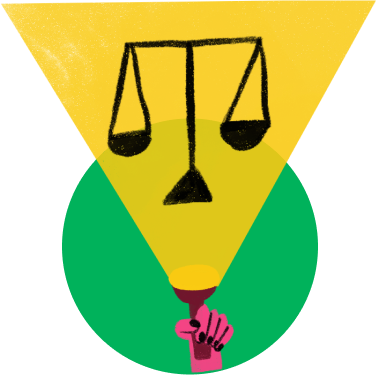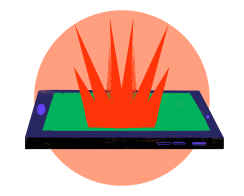To combat online violence, we must address the problem in a comprehensive way: it is important to work on the psychosocial well-being of people who are victims of violence, while improving our ability to report the violence, through the knowledge of the relevant national and international laws and the response mechanisms that exist to deal with it.
Taking control over our own information and our digital processes is the most subversive way to confront the systematic violence directed towards women and minority groups.

Documenting
Documenting and registering incidents
We recommend that you document the aggression received. This helps to generate records and evidence in the event that the attacks continue to occur, whether from the same or from different profiles. Registering the event involves taking note of what happened, and documenting means collecting all the information of each incident or attack, in order to be able to understand what happened, even after some time has passed.
Why is it important to have the documentation and registration?
It is important and necessary to do so in order to be able to identify the aggressors and/or file a complaint or report. It is recommended to register and document the following issues:
- Attacks
- Incidents (anything unusual that happens on our accounts or devices, as well as on the physical sphere)
How to document?
Create an incident log. You can find an example of how to do so here.
Organize the storage of the rest of the information, such as:
- Screenshots of unauthorized entries where date, device and IP address can be seen
- Screenshots of harmful messages where profile picture and date can be seen
- Screenshots of social media profiles from which someone is being attacked, including the profile picture
hink about the safest mechanisms to keep this documents safely up to date among the people of the organization. It is also recommended to save backups of the documents.
¿Cómo apoyar a otres?
The episode of violence may not happen to us, but to other people close to us. It is important that, in these cases, we are prepare
The episode of violence may not happen to us, but to other people close to us. It is important that, in these cases, we are prepared and know how to act. We recommend the following caring and support practices.
Offer your support:
-
If you are near a person that is being attacked, offer immediate assistance. Be aware that this person may feel overwhelmed and may not have clear instructions on how to be assisted. You must remain calm, with active attention and with patience. Try not to add pressure or stress.
-
In the case of doxing (when sensitive, detailed and abundant information about a person is published for malicious reasons), you can offer them a safe place to stay (like your home) if the person does not feel safe.
-
You can offer to handle their accounts on social media or other platforms, to give them a break in that task.
-
You can also review national and local laws and policies on dealing with online and offline harassment, to turn your knowledge into concrete actions that can help the person being attacked. You can visit the site of the acoso.online project, which seeks to provide tools and legal knowledge to help you in situations of digital violence, such as the non-consensual publication of intimate images and videos by electronic means.
-
Make yourself heard: you can try to make your voice be heard on your social platforms, discussing what is happening and talking about these types of violence.

